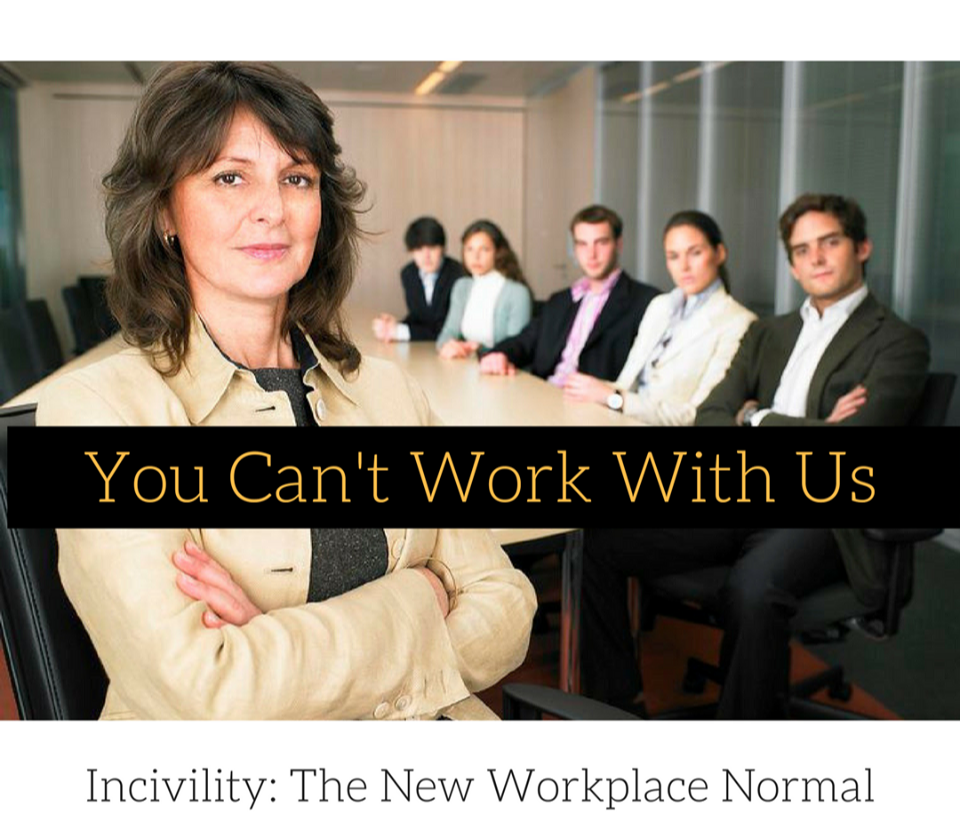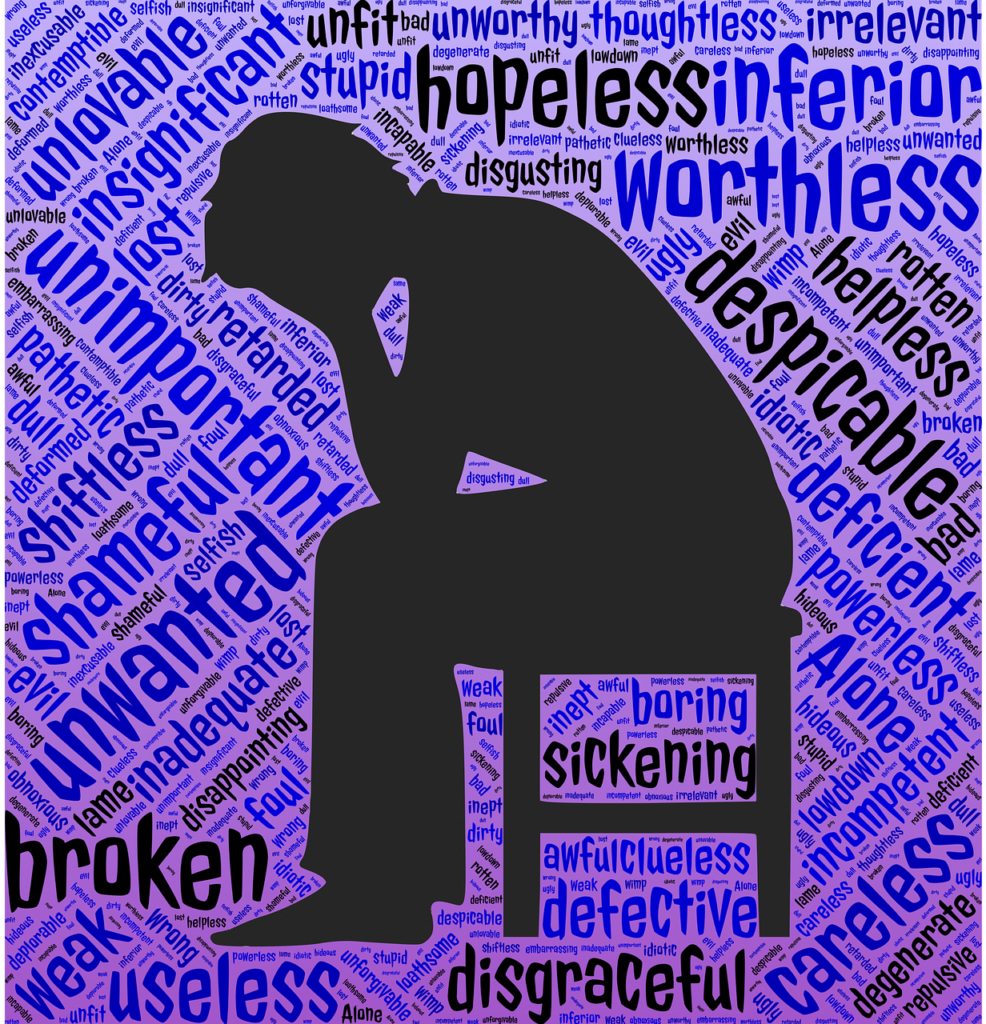Incivility exists all around: at work, at home, at sporting events, at church, and really anywhere other people congregate. You can get blindsided by it, leaving you wondering how to respond.

What Is Incivility?
In a nutshell, personal incivility means treating another person discourteously and disrespectfully. Often harm is implied or intended. In other words, it means a refusal or neglect to acknowledge the other as an equal sovereign person.
Moreover, incivility can lead to behavior deviating even further from the bounds of acceptability. Uncivil behavior can ultimately expand to violence, bullying, gaslighting, and narcissistic, sociopathic, or psychopathic behavior. As the latter behaviors can stem from mental illnesses, they tend to be at the extremes of behavior. Not all incivility necessarily leads to them.
It isn’t always a person
In addition to person-to-person incivility, corporate cultures as well as social and/or political systems can be characterized by incivility. Once uncivil behavior is tolerated without consistent controls and appropriate consequences being placed on it, corporate culture can degenerate into a system where employees feel disempowered, isolated, and demeaned.
Politics and religion…
In political systems, incivility can change the tenor of the discussion from one of considering the issues to one of disrespecting dissenting voices. In city councils, county commissions, state and federal agencies, community action groups, non-profits, and more, where healthy, informed disagreement forms the foundation of progress and growth, civil discussion becomes impossible.
Name-calling and mud-slinging
This leads to a breakdown of productive conversations. Divisive behaviors like name-calling, mud-slinging, undermining, slandering/character assassination, ignoring, and others occur. These behaviors deepen the divisions and solidify the sense of separation among the people involved.

Who Practices Incivility?
Everyone is uncivil sometimes. You have probably cut off others as they speak, said unkind things, gossiped, or engaged in other boorish behaviors once in a while. This can result from feelings of weakness, insecurity, or vulnerability. Maybe you’re under a lot of stress, or you’re angry for reasons outside the present environment. Perhaps you feel threatened by someone. You might feel the other has done something to deserve incivility from you.
Maybe life has been just plain difficult recently – and you’re being discourteous or disrespectful with those around you who may not deserve to be treated this way.
Is it a pattern, or a single instance?
Until it becomes a pattern for an individual, it’s just an unfortunate incident. Hopefully it can be set right with proper actions.
Often the chronically uncivil person feels entitled but believes he doesn’t receive proper respect. He often has an unhealthy need to control others. Chronically uncivil people may also have a desire to humiliate others or make them feel vulnerable. Moreover, he is often a bully, engaging in uncivil behaviors when he isn’t bullying.
What to Do in the Face of Incivility
The first step to responding to uncivil behavior is to realize that incivility reflects on the person being uncivil. It has nothing to do with you. You may simply be the first person to interact with her after an unhappy incident with someone else. She may be transferring her feelings of frustration and irritation onto you. It’s possible she may not even realize she’s doing it.
If You Are Dealing with a Friend or Acquaintance
Incivility can bring up your defenses. The hurt or anger from uncivil behavior can drive you to retaliate. Before taking an action you might regret, step back and put your emotions on ice for a moment. Ask yourself if this kind of behavior is habitual from this person; if it isn’t, take a deep breath and ignore it. There may be extenuating circumstances.
If this behavior is typical of this person, consider putting some emotional distance between you and her. Do not respond in kind, as it will do nothing to resolve the situation. Instead, make it a point to spend a few minutes evaluating how much future interaction you want with this person. Decide how you will handle it, knowing that incivility is the norm with this individual.
If You Are Dealing with a Family Member
This situation can be very difficult, because so many emotions are interwoven into familial relationships. You can’t just walk away from family. You must find a way to deflect the chronic uncivil behavior without getting drawn into the drama and negativity.
Learn to recognize the reactions that chronic incivility creates in you. Identify the physical stress responses – for example, tightness in your stomach, or tension in your neck and shoulders – and the related conditions – nausea or heartburn, or a headache. When you feel these things happening, you almost always have an emotional reaction, too – anxiety, anger, fear – that lead you to engage the other person in ways that are not in your best interest.

Respond by choice, don’t react by habit
Once you recognize the physical signs of stress, you can make a decision to pause. Step back and choose not to engage with them in their incivility.
It’s truly hard to learn to do this, especially since chronic incivility leads to habitual responses. You may believe you have no choice over the emotions you feel. Perhaps you’re not even consciously aware of the physical sensations that accompany your emotions. You can’t control the emotions, sensations, or thoughts; they just happen. You can control what you do next.
Do nothing
And next, do nothing. Choose not to respond in kind. If you feel the need to reply, say something that deflects their incivility past you. Don’t engage them or accept blame. Instead, say something like, “I’m sorry you feel that way. Let’s talk again when you’re not so upset.”
Family problems frequently continue unchanged for years or even decades. Family members all become accustomed to playing their roles. Everyone does and says the same things every time, and nothing ever changes. Next time, don’t play your role.

If You Are Dealing with a Co-Worker
In this case, ignore the emotions being expressed and remain calm. If he brought up a relevant topic, then address the topic, not the emotion. Be mindful to keep yourself separate from the emotions being expressed by the other person. Do not reciprocate anger or frustration. It doesn’t help to resolve the situation.
Express understanding not blame
The uncivil person may demand that you acknowledge his emotion. Tell him you understand why he feels frustrated or angry by retelling back to him, in your own words, the situation that caused him to be upset. Tell him that you’d like to help resolve the matter – if that’s something you are in a position to do and it’s appropriate. If it isn’t something you ought to be doing, then simply express understanding and leave it at that.
Your responsibility is to yourself. You cannot change the uncivil person, nor can you control her behavior. You can only control yourself. Remind yourself that incivility directed at you is a reflection of the uncivil person, not a reflection of you.
If You Are Dealing with a Subordinate
Create company and even departmental guidelines for dealing with incivility. However, attempting to force a chronically uncivil person to be compliant does not cause them to make an inward change. Instead, it may drive them to find surreptitious ways to be disruptive and uncivil. This can make the problem harder to track and to manage.
When dealing with chronic incivility from a specific employee, consequences must be enforced evenly and consistently. Consequences include corrective actions up to and including termination from employment. All employees need to know that uncivil behavior toward others will not be tolerated.
A culture of respect
Creating a culture of respect and courtesy takes consistent work. Nevertheless, everyone involved in the effort benefits. Ultimately, employee morale and productivity will rise. Innovation and efficiency also improve. The number of employee sick days drop, as do the number of employees who look for other work and leave. Finally, when each person feels valued for his or her contribution, she feels confident to do her job to the best of her ability, looking for ways to do better.
It Isn’t Easy
But nothing worth doing is easy. Take these steps to start:
- learn to deflect incivility.
- stop buying into it.
- stop retaliating.
- listen to what they say. Reply to the topic without reacting to or addressing the incivility.
- keep our emotions out of the conversation.
- avoid internalizing uncivil words and behavior.
- realize that incivility is an attribute of the person engaging in uncivil behavior.
- recognize that we don’t have to change the behavior or the person. That’s not for us to do.
Refuse to engage
In conclusion, if we, even once, turn incivility aside and refuse to engage with the uncivil person on his terms, we change our relationships. In addition, if we respond with calmness and civility – no matter how the other person reacts to that calmness – we create a better future for ourselves, and maybe for those we love, too.
#butterflyphoenix #incivility #love #keepcalmandrespond



